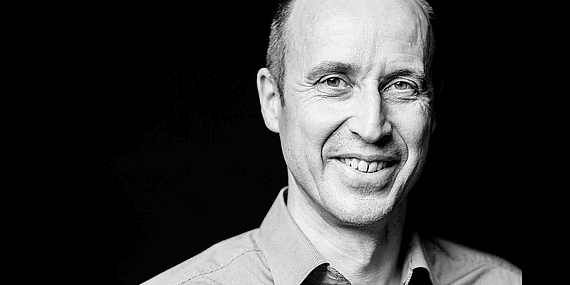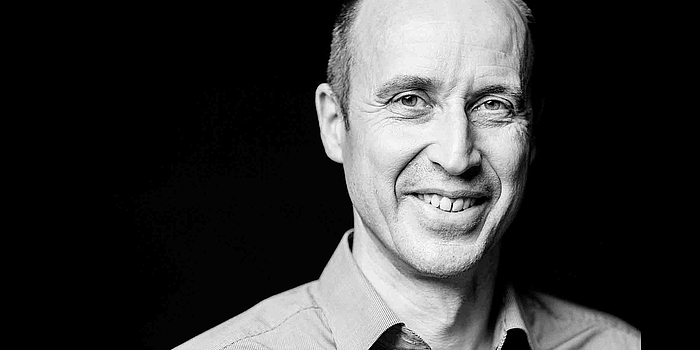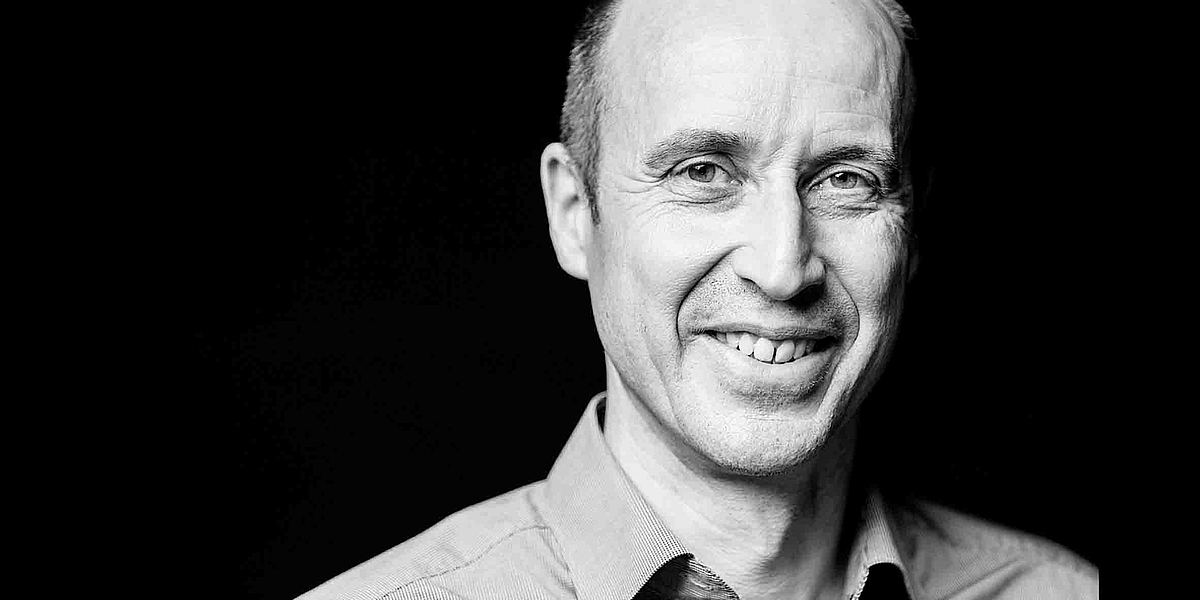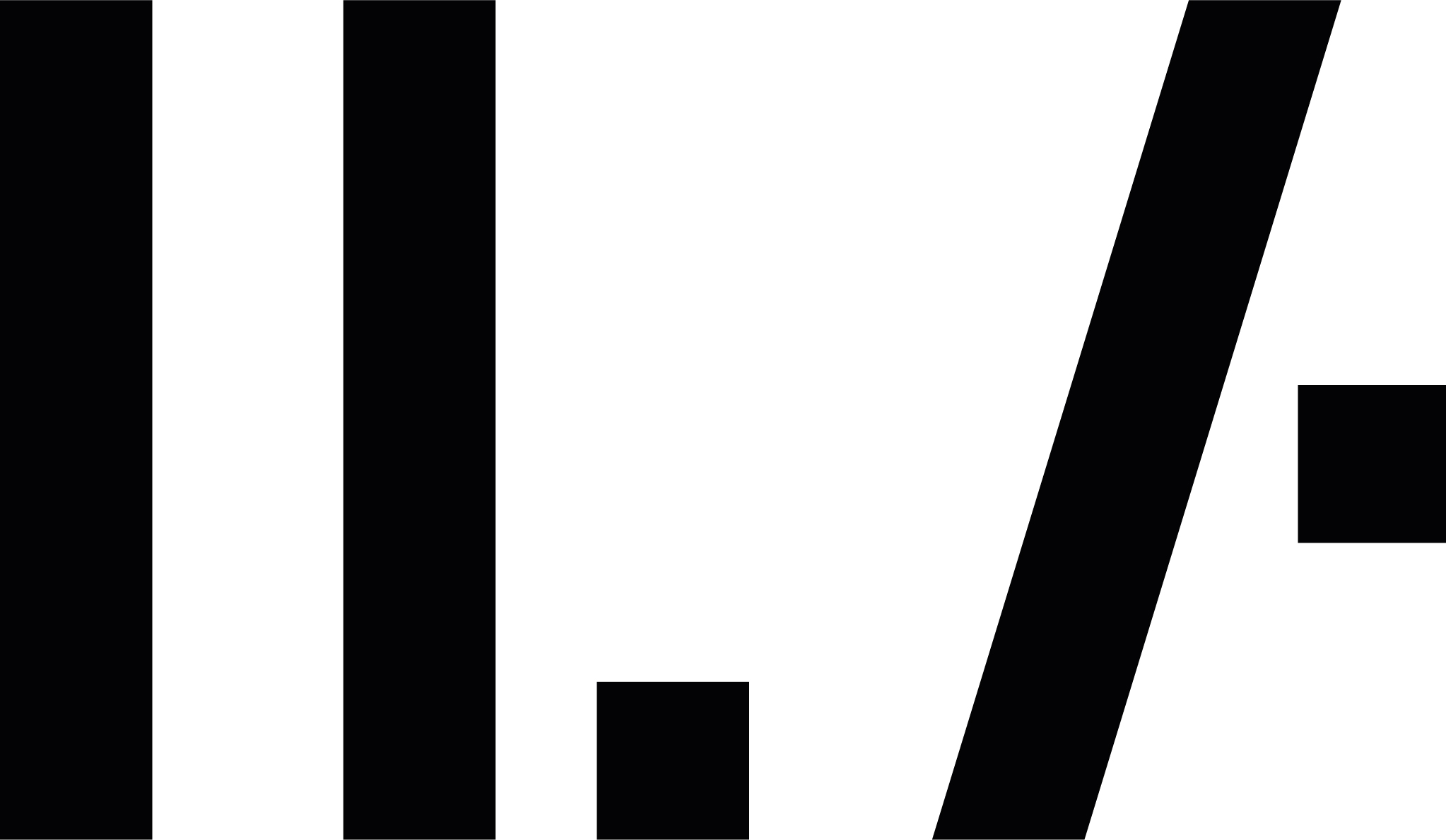

 ©
Julian Martitz
©
Julian Martitz
Christian Werthmann is Professor of Landscape Architecture and Design at the Leibniz University Hannover. As a practitioner Werthmann has completed major built projects in world renowned design firms in Germany and the United States. As an academic, he has written numerous books and articles, exhibited globally and has been a speaker at international conferences on landscape and urbanism.
-
Biography
Christian Werthmann is Professor of Landscape Architecture and Design at the Leibniz University Hannover.
As a practitioner Werthmann has completed major built projects in world renowned design firms in Germany and the United States. As an academic, he has written numerous books and articles, exhibited globally and has been a speaker at international conferences on landscape and urbanism. He is also active in curating and co-curating interdisciplinary symposia. His research concentrates on the potentials of landscape architecture in heavily urbanized, socially conflicted hazardous terrain. His work makes him part of a small but growing group of landscape architects engaged in non-formal cities and disaster zones, where he overlays technical innovation with social and natural systems to foster productive and engaging public spaces.
Until 2012, Werthmann was an Associate Professor and the former Director of the Master in Landscape Architecture Degree Programs at the Harvard Graduate School of Design. Part of his research there resulted in the book Green Roof: A Case Study (Princeton Architectural Press, 2007), which has since become a staple in the curricula of North American design schools. Since 2007, Werthmann has focused on the phenomena of informal urbanism as the dominant force for urban growth on the planet. In Spring 2008, together with landscape theorist John Beardsley, he staged a travelling exhibition entitled Dirty Work: Transforming the Landscape of Nonformal Cities in the Americas, showcasing landscape based projects in the non-formal sector of seven Latin American cities. He also edited a studio report Tactical Operations in the Informal City (2009), which was awarded the 2010 Award in Communication Excellence by the American Society of Landscape Architects and is considered one of the early academic resources featuring landscape-based visions for non-formal cities.
Based on his innovative, risk-related research investigations, Werthmann has been awarded the prestigious Hans Fischer Senior Fellowship of the Technical University in Munich (2011), where he curated two major conferences on informal urbanization (Metropolis Nonformal, 2011 and 2013). Based on these conferences he published a book with the journalist Jessica Bridger on the strategic approaches of 25 experts towards informal urbanization (Metropolis Nonformal, 2015).
Since 2011 his focus went towards landscape based resilience strategies for low-income communities threatened by natural disaster. The ensuing work included studies for post-earthquake communities in Haiti (jointly with MIT and Harvard), strategies for informal urbanization in the landslide-prone hills of Medellin, Colombia (Rehabitar la ladera, 2014, Inform@risk, 2022 ) and studies on flooding issues in São Paulo (2015). In 2017 he curated the Dangerous Landscapes conference at the Herrenhausen Palace in Hannover. Based on this work he co-curated the exhibition "out there. Landscape Architecture on Global Terrain" at the Architectural Museum of the Technical University Munich (2017) that was subsequently shown at the Museum of the Herrenhausen Palace in Hannover (2018).
His latest monograph Informal Urbanization in Latin America. Collaborative Transformations of Public Spaces (2021) explores landscape architectural interventions in informal urbanization over long time periods. " - Vita
-
List of Publications
BOOKS
Andres Lepik in cooperation with Undine Giseke, Regine Keller, Jörg Rekittke, Antje Stokman, Christian Werthmann (eds.) Out There. Landscape Architecture on Global Terrain. Berlin: Hatje Cantz, 2017
Werthmann, Christian, and Jessica Bridger, eds. Metropolis Nonformal. San Francisco: Applied Research + Design Publishing, 2015.
Werthmann, Christian. Green Roof- A Case Study: Michael Van Valkenburgh’s Associates
Design for the Headquarters of the American Society of Landscape Architects. New York: Princeton Architectural Press, 2007.RESEARCH REPORTS
Werthmann, Christian, and Alejandro Echeverri, eds. Rehabitar La Montaña: Estrategias y procesos para un hábitat sostenible en las laderas de Medellín. Medellin: Universidad EAFIT, 2013.
Werthmann, Christian, Alejandro Echeverri, and Ana Elvira Vélez, eds. Rehabitar La Ladera: Shifting Ground. (Medellin: Universidad EAFIT, 2012), accessed April 10, 2015, http://issuu.com/werthmann/docs/shiftingground.
Werthmann Christian, Phil Thompson, Dan Weissman, Anya Brickman Raredon, and Erdem Ergin, eds. Designing Process: Opportunities for Long- term Sustainable Urbanization in Post-Disaster Port-au-Prince, Haiti. (USA: Harvard MIT, 2012), accessed April 10, 2015, http://issuu.com/gsdmit/docs/designingprocess/1.
Schröpfer, Thomas, Christian Werthmann, and Limin Hee. TransUrban: Charting Experiments for Cities of the Future. Case Study 03: Valdesparterra, Spain; Case Study 04: Sarriguren, Spain; Case Study 05: BO2, Malmö, Sweden. Cambridge, MA: Harvard University, Graduate School of Design, 2010.
Schröpfer, Thomas, Christian Werthmann, and Limin Hee. TransUrban: Charting Experiments for Cities of the Future. Case Study 02: solarCity Linz- Pichling. Cambridge, MA: Harvard University, Graduate School of Design, 2008.
ARTICLES
Schröpfer, Thomas, Christian Werthmann, and Limin Hee. TransUrban: Charting Experiments for Cities of the Future. Case Study 01: Vauban. Cambridge, MA: Harvard University, Graduate School of Design, 2007.
Werthmann, Christian. “Der Raum im Zeitalter seiner technischen Reproduktion. Über Materialität und Virtualität (Eng.: Space in the Time of its Technical Reproduction. About Materiality and Virtuality).” Thesis, Fachhochschule Weihenstephan, 1992.
Werthmann, Christian "Zur Ausstellung Draußen. Landschaftsarchitektur auf globalem Terrain" MAP- München Architektur Programm 03+04 2017. München: Fakultät für Architektur und dem Architekturmuseum der Technischen Universität München, 2017
Claghorn, Joseph, Orsini, Francesco Maria, Echeverri Restrepo, Carlos Alejandro, Werthmann, Christian. „Rehabitar la Montaña: strategies and processes for sustainable communities in the mountainous periphery of Medellín“ urbe 8 (1), 2016.
Claghorn, Joseph, Christian Werthmann. „Shifting Ground: Landslide Risk Mitigation through Community-Based Landscape Interventions.“ Journal of Landscape Architecture 10 (2015): 6-15.
Claghorn, Joseph, Christian Werthmann. “Non-formal Growth and Landslide Risk. Strategies to improve non-formal settlements in Medellin.“ TOPOS 90 (2015): 50-56
Werthmann, Christian. “Landschaftsarchitektur in einer geteilten Welt.“ In Zukunft Stadtgrün: Nutzen und Notwendigkeit urbaner Freiräume, edited by DGGL e.V., 102-106. München: Callwey, 2014.
Werthmann, Christian. “Social Design – Die Rolle der Landschaftsarchitektur in der Urbanisierung unseres Planeten.” Unimagazin, Zeitschrift der Leibniz Universität Hannover 03/04 (2013): 50-55.
Werthmann, Christian. “Designing Process: The Exemplar Community Zoranje in Haiti.“ TOPOS 76 (2011): 90-96.
Werthmann, Christian. “Landscape on the Edge.“ In Urban Agriculture Casablanca: Design as an integrative Factor of Research, edited by Undine Giseke, 6-7. Berlin: Technische Universität Berlin, 2010.
Werthmann, Christian, Limin Hee and Thomas Schröpfer. “Aspirations and Realities of Exemplary Eco-cities.“ Detail Green 2 (2010): 12-15.
Werthmann, Christian. “Green Infrastructure in Slums.“ Paper presented at CELA Conference, the Netherlands, Maastricht, May 12-14, 2010.
Werthmann, Christian, “Green Roofs in Dry Climates.“ Paper presented at Proceedings of Water Expo Zaragoza, Spain, June 12-14, 2008.
Werthmann, Christian. “Tactical Infrastructure Interventions.“ In SLUM Lab: Informal Toolbox, edited by Alfredo Brillembourg, and Hubert Klumpner, 68- 71. São Paulo: São Paulo Housing Agency, 2008.
Werthmann, Christian, and John Beardsley. “Dirty Work.“ TOPOS 64 (2008): 36-42.
Werthmann, Christian, and John Beardsley. “Improving Informal Settlements.“ Harvard Design Magazine 28 (2008): 31-34.
Werthmann, Christian. “Making History: The Favela Bairro Program and More.“ Harvard Design Magazine 28 (2008): 46-49.
Werthmann, Christian. “Dirty Water: The Guarapiranga Reservoir, Parque Amelia: The City of Sao Paulo; Watery Voids: MMBB.“ Harvard Design Magazine 28 (2008): 58-61.
Werthmann, Christian, and Thomas Schroepfer. “Faculty Project TransUrban.“ Harvard Design Magazine 28 (2008): 126-127.
Werthmann, Christian, Thomas Schroepfer, and Limin Hee. “TransUrban: Vauban.” Paper presented at 3rd International Conference on Sustainable Development and Planning, Algarve, Portugal, April 25-27, 2007.
Werthmann, Christian. “Mesopotamian Marshes and Modern Development: Practical Approaches for Sustaining Restored Ecological and Cultural Landscapes Harvard University, October 28–30, 2004.“ Landscape Journal 24 (2005): 223-224.
Werthmann, Christian. “Power Fusion: Landschaftsurbanismus und grüne Infrastruktur in den USA.“ Garten+Landschaft 4 (2007): 16-19.
BOOK CONTRIBUTIONS
Werthmann, Christian "Learning from Canaan, Haiti’s Third Largest
City (?) Born in the Aftermath of a Catastrophe" in Bandau, Anja , Brüske, Anne und Ueckmann, Natascha (Hrsg.): Reshaping Glocal Dynamics of the Caribbean: Relaciones y Desconexiones, Relations et Déconnexions, Relations and Disconnections, Heidelberg: Heidelberg University Publishing, 2018, p. 231-242Werthmann, Christian. "Walking the Third Path" In: Inspiration Highline, edited by Udo Weilacher, 64-65. Munich: Technical University Munich, 2018.
Werthmann, Christian. "Warum der Garten im Zeitalter planetarischer Urbanisierung noch nicht ausgedient hat" In: Wolschke-Bulmahn, Joachim/Clark, Ronald (eds.): Der Garten als Modell. Festschrift für Kaspar Klaffke, Herrenhäuser Schriften. Eine Reihe der Freunde der Herrenhäuser Gärten e.V., Band 5, 383-394. Munich: Akademische Verlagsgemeinschaft München, 2017.
Undine Giseke, Regine Keller, Jörg Rekittke, Antje Stokman, Christian Werthmann "Out There. Landscape Architecture on Global Terrain" In: Out There. Landscape Architecture on Global Terrain, edited by Andres Lepik in cooperation with Undine Giseke, Regine Keller, Jörg Rekittke, Antje Stokman, Christian Werthmann, 8-11. Berlin: Hatje Cantz, 2017.
Werthmann, Christian. "São Paulo, Brasil. The Lost River of Tamanduateí". In: Out There. Landscape Architecture on Global Terrain, edited by Andres Lepik in cooperation with Undine Giseke, Regine Keller, Jörg Rekittke, Antje Stokman, Christian Werthmann, 136-145. Berlin: Hatje Cantz, 2017.
Werthmann, Christian. "Medellín, Colombia. Shifting Ground" In: Out There. Landscape Architecture on Global Terrain, edited by Andres Lepik in cooperation with Undine Giseke, Regine Keller, Jörg Rekittke, Antje Stokman, Christian Werthmann, 124-133. Berlin: Hatje Cantz, 2017.
Werthmann, Christian. "Daseinsvorsorge für die andere Mehrheit: Eine internationale Perspektive" In: Stadt Denken 1, edited by Deutsche Akademie für Städtebau und Landesplanung, 129-140, Berlin, 2017.
Werthmann, Christian. „Skipping Centralization“ In: Global Stability Through Decentralization?, edited by Martin A. Wilderer and Martin Grambow, 75-80. Heidelberg: Springer, 2016
Hannemann, Johann-Christian, Christian Werthmann, and Thomas E. Hauck. “Designing for Uncertainty: The Case of Canaan, Haiti.“ In Revising Green Infrastructure: Concepts between Nature and Design, edited by Daniel Czechowski, Thomas Hauck, and Georg Hausladen, 323-351. Boca Raton: CRC Press, 2014.
Werthmann, Christian. “Pollution and Propaganda.“ In Design in the Terrain of Water, edited by Anuradha Mathur, and Dilip da Cunha, 123-129. Philadelphia: Applied Research + Design Publishing, 2014.
Werthmann, Christian. “Biotic Rooftops.“ In Ecological Architecture, edited by Thomas Schröpfer, 70-78. Basel: Birkhäuser, 2012.
Werthmann, Christian. “Is Informal Urbanism Sustainable.“ In Sustainable Urbanism and Beyond, edited by Tigran Hassan, 58-60. New York: Rizzoli, 2012.
Werthmann, Christian. “Dirty Work: Landscape and Infrastructure in Nonformal Cities.“ In Design with the Other 90%: Cities, edited by Cynthia E. Smith, 78-93. New York: Cooper Hewitt, Smithsonian Design Museum, 2011.
Werthmann, Christian. “Squatting Infrastructure.“ In Infrastructural Urbanism, edited by Thomas Hauck, Regine Keller, and Volker Kleinekort, 289-302. Berlin: Dom Publishers, 2011.
Werthmann, Christian. “Stalker.“ In Learning from Duisburg Nord: Kommentare internationaler Experten zu einem Meisterstück aktueller Landschaftsarchitektur, edited by Udo Weilacher, 76-77. München: Lehrstuhl fuer Landschaftsarchitektur und industrielle Landschaft, Technical University Munich, 2010.
Werthmann, Christian. “A Place in Heaven, a Place in Hell: Tactical Operations in São Paulo.“ In Ecological Urbanism, edited by Mohsen Mostafavi, and Gareth Doherty, 588-589. Baden, Switzerland: Lars Müller Publishers, 2010.
Werthmann, Christian. “Story of a Map.“ In A View on Harvard GSD Vol. 1, edited by Mohsen Mostafavi, Alexander Dean, and Victoria Wiley, 653. Cambridge, MA: Tank Form Ltd for the Harvard University Graduate School of Design, 2009.
Werthmann, Christian. “Environmental and Informal Urbanism – a Comparison.“ In Metropolis 2: Resources: Design for the Future of Metropolis, edited by Oliver Hamm, and Olaf Bartels, 122-133. Berlin: Jovis, 2008.
STUDIO REPORTS
Werthmann, Christian, ed. Tactical Operations in the Informal City. São Paulo: São Paulo Housing Agency, 2009.
Werthmann, Christian, and Carl Steinitz, eds. Reviving the Tajo River. Toledo: Fundación + Summa, 2008.
Werthmann, Christian, and Carl Steinitz, eds. An Alternative Future for the Landscapes of Castilla: La Mancha. Toledo : Foro Civitas Noca; Cambridge, MA: Harvard University, Graduate School of Design, 2007.


